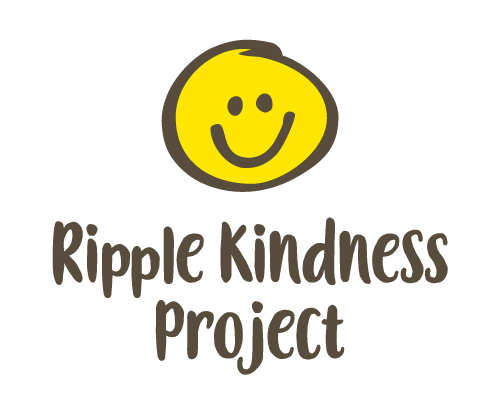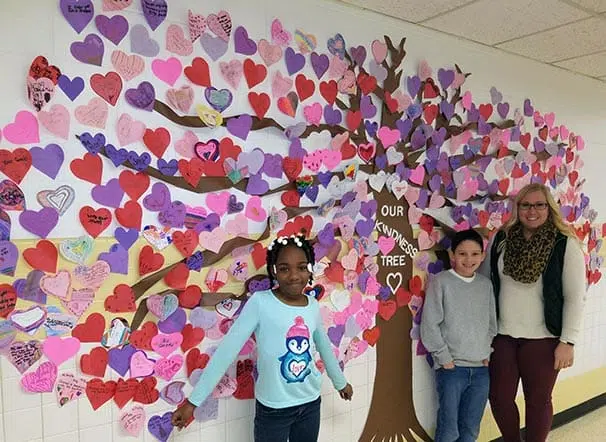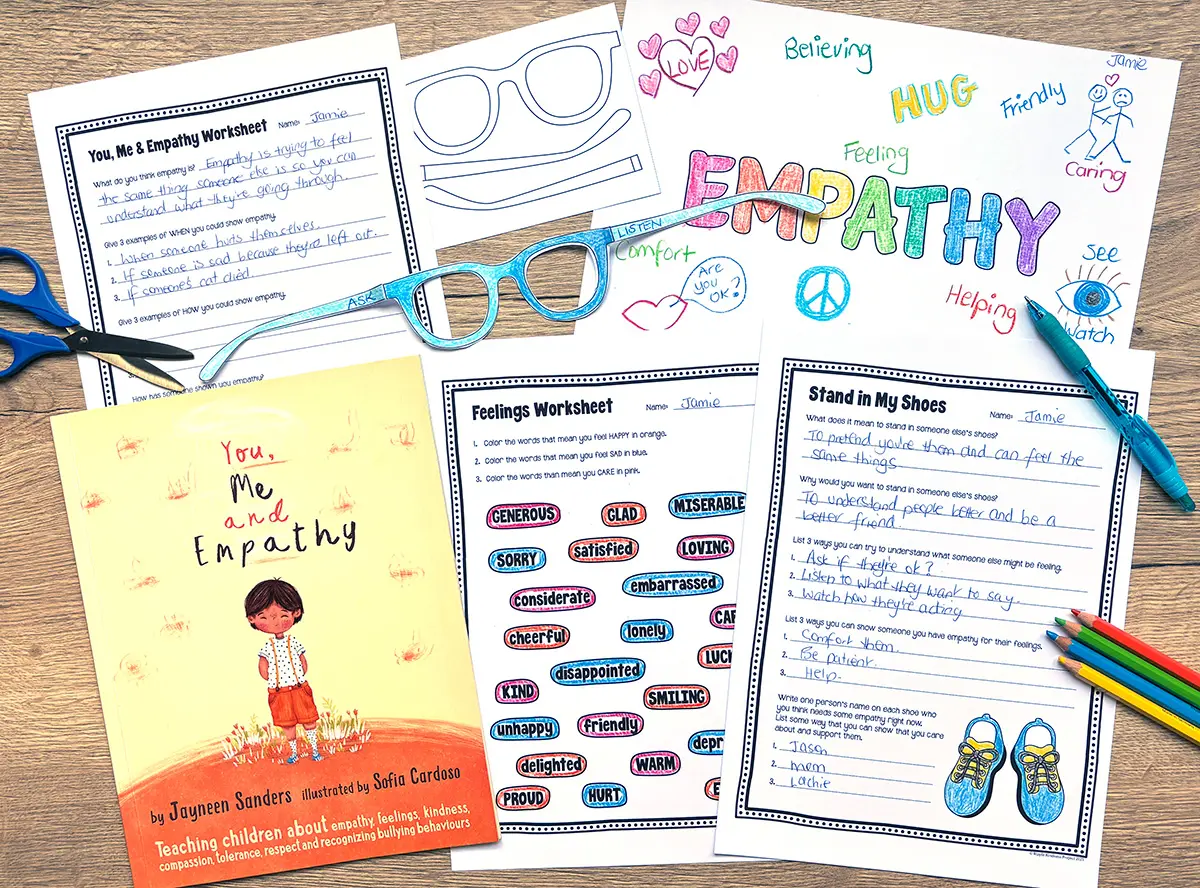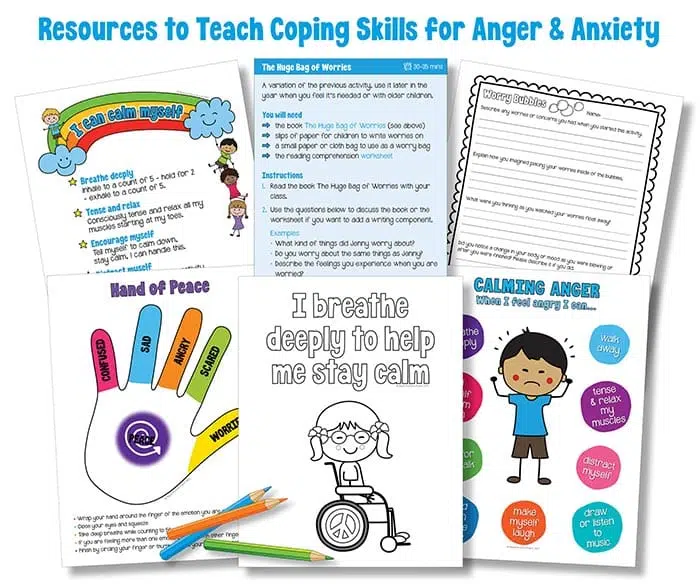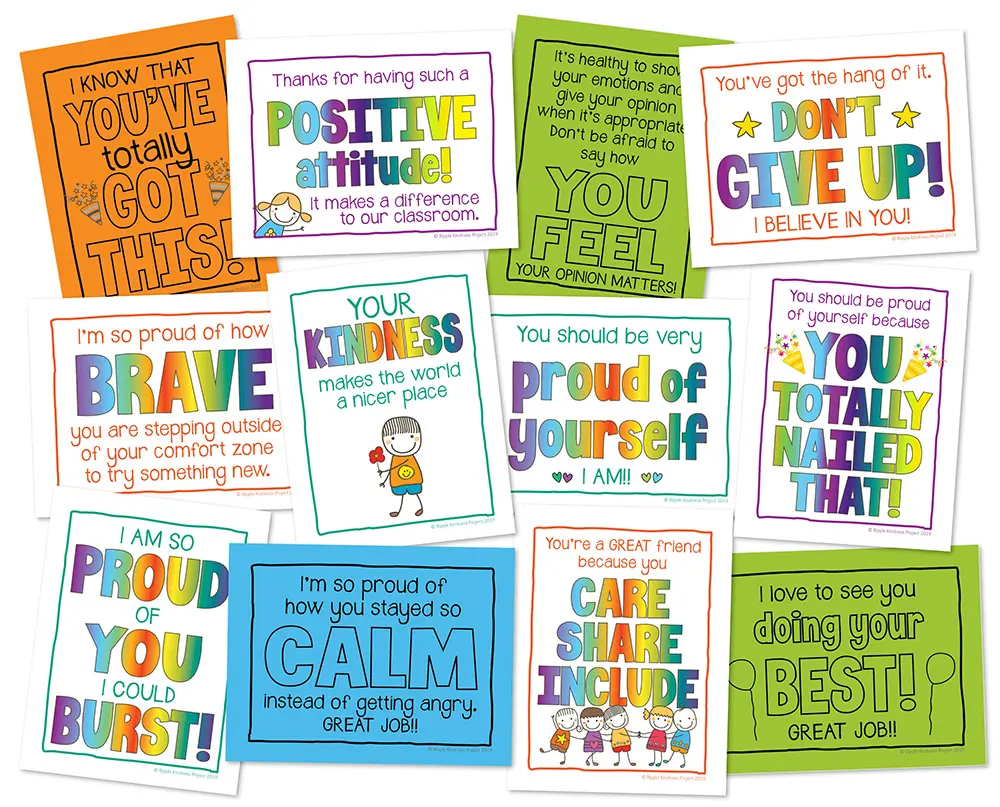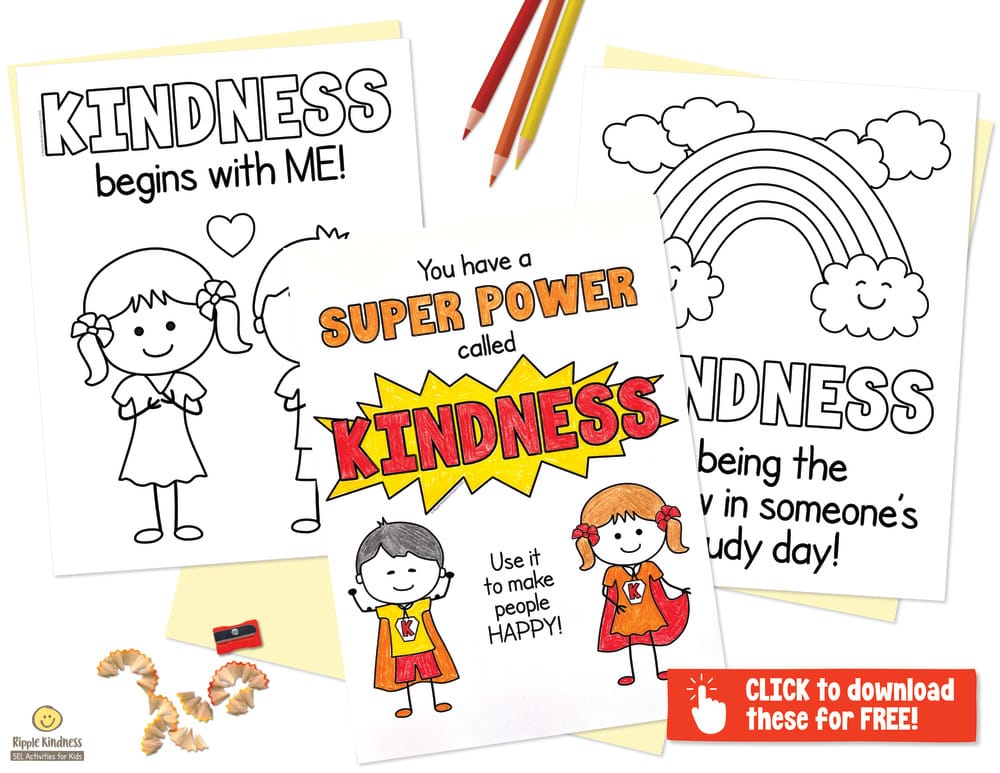Toothpaste Life Lesson for Children: The Truth About Hurtful Words
Inside: Want a meaningful life lesson for children that sticks? This hands-on toothpaste activity helps kids understand how hurtful words can’t be taken back and why kindness matters. A powerful classroom tool for teaching empathy, emotional intelligence, and respectful communication.
In the landscape of education, few challenges are as complex as antisocial behavior and bullying. It's an uncomfortable life lesson for children and an emotional storm that many face each day. Preventing bullying in schools is a huge task, but there are lots of practical things teachers can do to help.
Developing emotional intelligence (EQ) by teaching children empathy and kindness is an important part of tackling this problem. So is building social awareness and understanding to improve relationships and help children navigate friendship challenges at school.
More...
Key Takeaways for Teachers
- A hands-on metaphor kids won’t forget: The toothpaste activity offers a vivid, tactile way for children to grasp how, when words are spoken, they can’t be taken back.
- Build emotional intelligence through reflection: Students explore how their words affect others, practicing empathy, accountability, and self-awareness.
- Reinforce kindness and respectful communication: Beyond avoiding hurtful language, this lesson encourages students to speak with care, offer compliments, and build each other up.
- Create a safe, inclusive classroom community: When kids understand the emotional impact of their words, they’re more likely to choose kindness.
- Flexible for any time of year: Use it during back-to-school season, on Kindness Day, Friendship Day, or whenever you notice tension or exclusion creeping into classroom dynamics.
- Minimal prep, maximum impact: This lesson resonates deeply with kids and only requires a few simple materials. It’s easy to run, engaging for students, and adaptable for different age groups.
- Extend the learning beyond the activity: Follow-up ideas like apology notes, kindness challenges, and home reflections help reinforce the message and build lasting habits.
- Supports core SEL competencies: This lesson touches on self-regulation, social awareness, relationship skills, and responsible decision-making, all wrapped in a playful, memorable experience.
To stop bullying before it takes root, we must prioritize social-emotional learning (SEL) to build EQ. Instilling good values like respect, compassion, and accountability is another part of the equation for creating a positive school environment where everyone can thrive.
Step by step, each activity, lesson, and positive interaction makes a difference.
I want to share a very simple but engaging way for teachers to impart an important lesson in friendship that explores friendship, empathy, and the lasting impact of unkind words.
Let me introduce you to the Toothpaste Life Lesson for children. It's been around for a while, but if you've never tried it, your students are missing out!
This is a memorable back-to-school activity to head bad behavior off before it starts, but it's also great for Friendship Day, Kindness Day, Anti-bullying Month, or any time friendship issues arise in your classroom.
It's not a magic fix, but it’s an effective, hands-on way to help kids understand the weight of their words and actions. Kids love it because it’s hands-on, diving into the nitty-gritty, and getting a bit messy. Teachers love it because it's easy to run and delivers a lasting message.
Pin this image to save this activity for later

The Toothpaste Lesson - An Impactful Life Lesson for Children
Each student or team receives a tube of toothpaste and a paper plate or heart. What comes next isn't an oral care tutorial but a unique demonstration of the impact of our words.
Students are instructed to squeeze some toothpaste onto their plates or hearts. Then they're challenged to put it back into the tube.
As you can imagine, it's almost impossible. The toothpaste oozes and spreads, leaving a mess on the plate or heart. The visual impact of the toothpaste activity is a powerful metaphor for the permanence of how we speak. You can clean some of the mess up, but you can never really leave things the way they were.
Reasons to Include This Activity in Your SEL Toolkit:
How We Speak Matters
In a world filled with constant communication, it's easy to underestimate the impact our words can have. This powerful life lesson for kids reinforces that once hurtful words are spoken, they can't be taken back. They leave a lasting impression, much like toothpaste that’s almost impossible to return to the tube.
Children, with their natural curiosity, quickly grasp the toothpaste analogy. It sparks meaningful conversations about the importance of thinking before speaking and how to avoid hurting someone's feelings.
The Connection to Kindness
At the heart of the Toothpaste Lesson is a profound message about the importance of kindness. The activity links the toothpaste squeezed from the tube to the permanence of hurtful words. It shows students that being kind and thoughtful creates a supportive, inclusive classroom environment.
Encourages Empathy
Discussing the emotions of others becomes a crucial aspect of the conversation. Students learn to empathize with those who may have been affected by unkind words. The activity helps them understand the emotional impact of their actions on classmates and friends.
Promotes Positive Communication
The Toothpaste Lesson isn’t just about avoiding hurtful words. It’s also about actively encouraging kindness. Compliments, support, and thoughtful expressions become a natural extension of the activity, reinforcing another important life lesson for children.
Creates a Safe Environment
The activity fosters an environment where students feel safe, respected, and valued. It's a reminder that, just as they desire kindness, their peers need it too, and that everyone plays a role in creating a positive space.
Builds a Foundation for Lifelong Values
The values instilled through this life lesson for children become part of their moral compass. As they grow, they carry the understanding of kindness and the awareness of how their words affect others. These are lessons that stay with them well into adulthood.
How to Teach the Toothpaste Lesson
The Toothpaste Lesson is an interactive activity that delivers a powerful message while students are having fun. It's not easy to do, but it should leave students considering their actions and making an effort to show kindness.
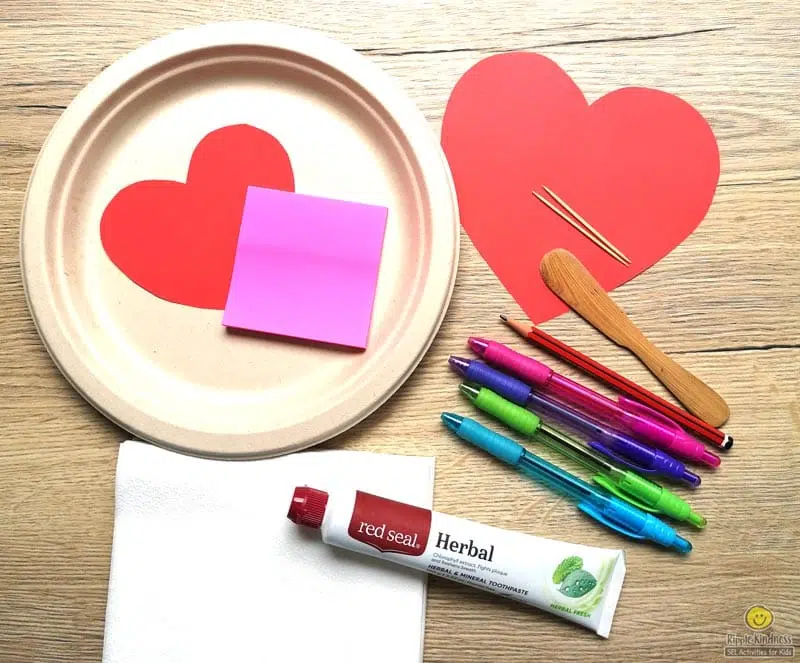
You Will Need:
Step 1: Setting the Stage
Start by introducing the lesson with a brief discussion on the power of words. Talk about how our what we say can have a lasting impact, much like toothpaste that can't be put back into the tube. Emphasize the importance of kindness and understanding in creating a positive classroom environment.
Step 2: Distribute Materials
Hand out a tube of toothpaste and a paper plate or red paper heart to each student. Explain that the toothpaste represents our words, and the paper plate or heart is where those words land.

Step 3: The Squeeze
Ask students to squeeze some of the toothpaste onto their plate or heart. This part of the activity symbolizes speaking without thinking about the impact of their words.
Step 4: Cleaning Up the Mess
Once everyone has squeezed out their toothpaste, explain that the mess they see represents unkind words and actions.

Now ask students to use a toothpick or other tool to try and put the toothpaste back into the tube. This illustrates the difficulty of taking back hurtful words once they've been spoken. Even if they manage to return some, the paper is left smeared and soggy, just like the emotional mess left behind.
Step 5: Group Reflection
Gather your students in a circle and discuss how they felt trying to put the toothpaste back into the tube. Talk about the parallels between the toothpaste and how we speak. Highlight how unkind words can make a mess of someone’s heart, and once they’re out, they can’t be taken back.
Discuss the importance of thinking before speaking. Teach students to pause and take deep breaths when they feel too angry to be kind. This simple but powerful self-regulation strategy can help them avoid a lot of pain.
Ask students if they’ve ever hurt someone’s feelings by blurting something out without thinking. Encourage honest reflection and empathy.
Step 6: Accountability Activity
To enhance the lesson, introduce the concept of "Apology Notes." Provide pencils and paper or sticky notes and ask each student to write an apology to someone they have been unkind to. If there's no-one they need to make amends with, ask them to write a compliment instead. Students can leave their notes in someone's bag, on their desk, or hand it to them in person.

Later, ask students how receiving an apology or compliment made them feel. Discuss the transformative effect of speaking kindly on a negative situation. Though they can't reverse the damage, being accountable and apologizing helps to build understanding and rebuild trust.
Homework or Extension Activity
Encourage students to take the concept of Apology Notes beyond the classroom. As homework or an extension activity, ask them to write a positive note to a friend or family member to reinforce the ongoing practice of using positive words to spread kindness.
This meaningful life lesson for children is a practical and engaging activity that's sure to leave a lasting impression on their hearts and minds. It belongs on every teachers' back-to-school checklist to foster a culture of kindness, empathy, and emotional awareness.
I'd love to know if you've used this activity in your classroom and how your students reacted. Please email me to share your experience, and don’t forget to grab my free kindness coloring pages for your SEL toolbox below!
► FREE Kindness Coloring Pages!

You may also like...

AUTHOR: Lisa Currie - Ripple Kindness Project
For over a decade, I've focused on promoting kindness and Social and Emotional Learning (SEL) in elementary classrooms. Through hands-on experience supporting students, I've seen how empathy and respect are vital for creating harmonious, inclusive environments. I'm passionate about helping students understand the impact of their emotions and actions on their relationships. I believe kindness is fundamental to fostering self-confidence and happiness while building inclusive, safe classroom communities that discourage bullying and exclusion.
